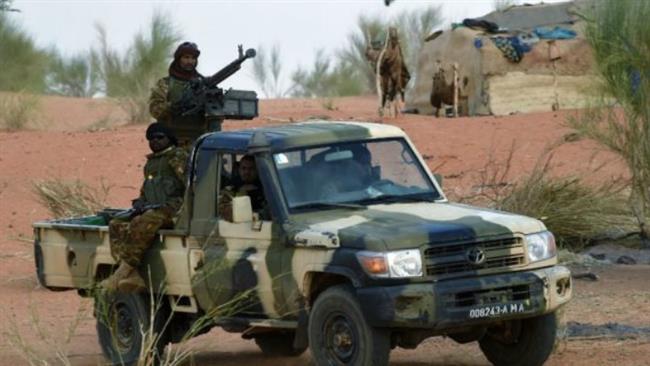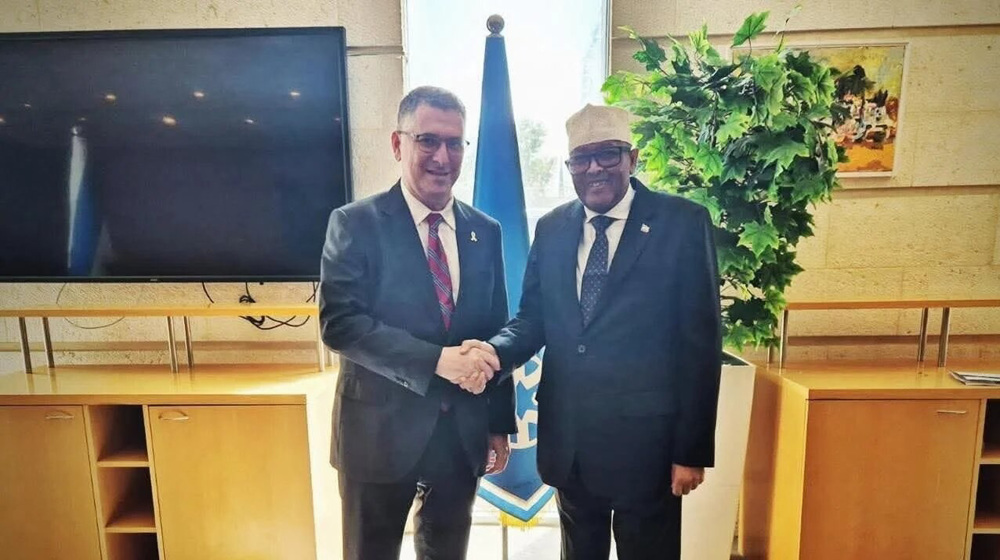Sahel ‘G5’ force starts anti-extremists fight
A joint anti-extremist force linking countries in the Sahel began operations on Wednesday, the French military mission in the region, which is providing support, told AFP.
"The deployment of Malian, Nigerien and Burkinabe troops in the G5 Sahel force began this morning," said a colonel for France's Barkhane mission, speaking on condition that only his first name of Marc-Antoine was used.
Several hundred troops have been deployed in the initial operation, codenamed Hawbi, he said.
It will "provide a show of strength and demonstrate presence" in the Mali, Burkina and Niger border regions "and impede freedom of movement, which several armed groups have enjoyed for months," Marc-Antoine said.
"The ultimate goal is to boost the power of the G5 Sahel force so that it can relocate by itself in cross-border zones," said Marc-Antoine.
The world's newest joint international force, the five-nation G5 Sahel plans to number up to 5,000 military, police and civilian troops by March 2018.
The 5,000 will comprise two battalions each from Mali and Niger and one each from Burkina Faso, Chad and Mauritania.
The force has been placed under the leadership of a Malian general, Didier Dacko, although for the time being the national contingents will not be integrated.
The idea behind the force dates back to November 2015 as countries on the rim of the Sahara grappled with an escalating wave of extremist attacks.
Across the region -- vast, poor, arid and politically volatile -- thousands of people have died, many of them in suicide bombings, and tens of thousands have fled their homes.
The crisis leapt on to the front pages and TV screens in the United States last month when four US special forces troops were killed as they patrolled with Nigerien troops near the Niger-Mali border.
The G5 Sahel's activities will be initially confined to Burkina Faso, Mali and Niger, where central governments have weak control over remote areas.
The first priority will be "taking back control of border areas," targeting extremists, bandits and human traffickers are major problems, Dacko has said.
France, the G5 Sahel's most vocal backer, has 4,000 military personnel in the Barkhane force.
Its role in Hawbi will be to provide "advice and support" with air and artillery, said Marc-Antoine, speaking from a forward base in the In-Tillit region in central Mali. About a hundred French troops will be involved in this context.
Money remains a major concern for the G5 Sahel.
Estimates for the first year of operations are put at 423 million euros ($490 million), although French officials say the budget can be brought down to around 240 million euros.
At present, it has funding pledges from 108 million euros, including 50 million from the five countries themselves, plus $60 million promised last week by the United States. A donor conference will be held in Brussels in December.
(Source: AFP)
Thousands block Melbourne as Israeli president ends contentious Australia visit
Nearly 800 Lufthansa flights cancelled as pilots, cabin crew strike
Pezeshkian: US, Israel exploit Iran’s challenges without genuine concern
VIDEO | Press TV's news headlines
VIDEO | Chaos by design
Banned US thermal bombs 'vaporized' thousands of Gazans: Report
Leader hails Iranians for disappointing enemies with multimillion rallies
VIDEO | 'Land of Angels' sweeps 44th Fajr Film Fest. awards

















 This makes it easy to access the Press TV website
This makes it easy to access the Press TV website